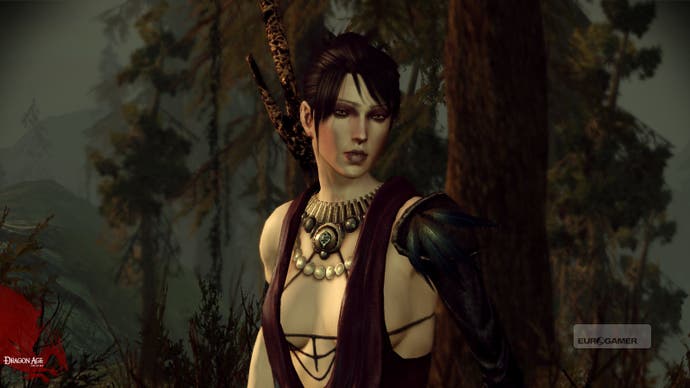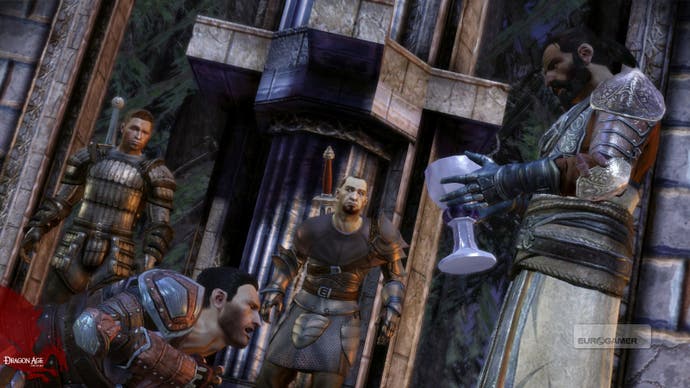Dragon Age: Origins
Age discrimination.
Say what you like about BioWare - the Canadian RPG specialists always did think big, and they've never thought bigger than they are right now. While the Austin-based offshoot prepares the company's maiden foray into MMOs with the huge Star Wars: The Old Republic, home base is about to make not one but two monster releases - Mass Effect 2 in January, and Dragon Age: Origins next month.
Given the popularity of Mass Effect the former's something of a home run, but there's much more riding on Dragon Age. Having spent a good six years exploring science-fiction, kung fu, SEGA mascots and console-led development, BioWare is returning to neglected roots with Dragon Age - PC-centric, trad fantasy roots, which drew on Dungeons & Dragons to grow Baldur's Gate and Neverwinter Nights.
The scale of Dragon Age's ambition dwarfs those games, however, as BioWare debuts a new fantasy universe and RPG ruleset that are all its own work, and that will in time form the foundations of much more than this one game. One immense game, which estimates put at something between 50 and 100 hours in length depending how much of it you want to see, and many more if you want to explore the permutations of its narrative in multiple play-throughs. Then there's the unprecedented two-year plan for DLC releases which will extend Origins' lifespan (and, no doubt, help pay for its epic development).
It's an important game, then; we got an indication how important (and how big) when publisher EA started distributing a complete PC review version to press months before its release. That never happens. We've already had plenty of time to sink our teeth into it, and bring you this run-down of how it all fits together ahead of our review in the coming weeks.

Character creation you may already be familiar with; PC players had a chance to download the character creator for free last week, a naked promotional exercise that will nevertheless save you a good hour or two once the game arrives on 6th November, because there's plenty to think about.
The class choice, at least, is simple: three basic and familiar archetypes, warrior, rogue and mage. Choice comes later, when you get a chance to learn one of four specialisations at level 7, and another at level 14. These are interesting and powerful variations - examples include the anti-caster Templar for warriors, druid-like Shapeshifter mage and the marriage of the Bard's party-buffing with the close-combat skills of the rogue.
Acquiring these specialisations isn't necessarily straightforward - even the phone-book-sized guide provided by EA with the review copy is evasive, calling the process "difficult". Some can be taught by party companions if they like you enough, others bought as manuals from certain traders... The rest, we have no idea, but it will probably depend on certain questing and story decisions you make.

You're hardly stuck in a rut, though, as customisation within your class occurs straight away. You get all your spells and abilities from talent trees, with points awarded at the start and every level, so character development is a purely personal choice throughout. Warriors and rogues choose a blend of weapon and class skills while mages choose from four schools of magic, and these give you a loose framework within which to define a role.
You also have non-combat skills that encompass crafting and the like. Then there are your character's core six core stats, which you can also shape yourself at the start and every level, being sure to bear in mind that unlocking certain talents depends on a stat requirement. It's a good RPG system - complex relationships and plenty of flexibility, but built on a simple foundation. Exactly as it should be. If you have no interest in it, both the player character and party companions can be set to auto-level-up along preset paths.









